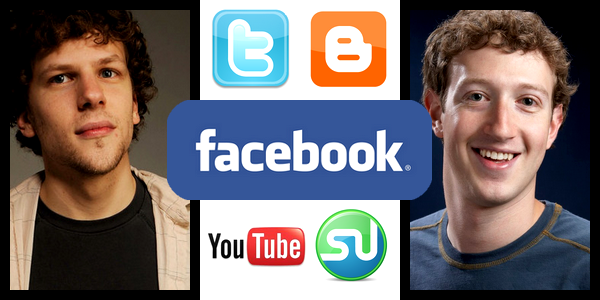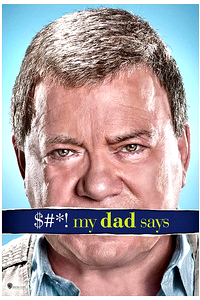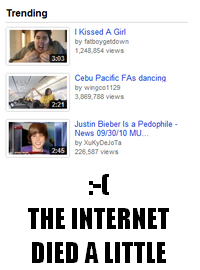
Welcome to the age of social media, where we are one with the Internet.
There is no denying the prominence of Facebook, Youtube, and Twitter over the past couple of years. Although these social media platforms did not exist a decade ago, they are now firmly integrated into modern society. In fact, it is incredible how much our lives are influenced by social media. We not only communicate online, but we also “tweet” and “digg” and “bookmark” and “favourite” and share all kinds of content. Any event of interest, regardless how insignificant it may be, is almost guaranteed to be reported via multiple online avenues. Whether it is a tweet or a blog post or a viral video, the buzz spreads rapidly across the Internet. After all, we are the Facebook, Youtube, and Twitter generation – we live and breathe through social media.
 | In particular, the rise of social media brought upon an interesting phenomenon within the traditional media format. Recently, the world watched its first ever situational comedy inspired by a Twitter account. Crassly titled $#*! My Dad Says, the show features William Shatner as a cantankerous old man with a wide array of snappy one-liners, while his son records these remarks on the Internet. The actual Twitter account has almost two million followers; the sitcom premiere debuted to an audience of over twelve million viewers. Let those impressive numbers sink in first, and then you better realize that it was an anonymous old man – who would never have been famous without the Internet – drew this much attention and popularity. At first, the concept of a Twitter account sounds laughably absurd – how could an actual television show sustain based on the random tweets of less than 140 characters? As it turns out, $#*! My Dad Says is no different from the standard laugh track comedies on CBS, complete with Shatner’s distinguished way of delivering a ha-ha punch line (or any line at all, really). Yet, it is the idea behind the sitcom that displays the most originality. Think about what the show has accomplished by its mere existence: a social media icon is being celebrated in network television! Can you imagine getting a TV show based on your disjointed thoughts online? Can you imagine being famous because of your Twitter account? |
While Facebook, Youtube, and Twitter grow more dominant in our culture, it is becoming increasingly clear that social media has no boundaries anymore. Its influence reaches beyond the Twitterverse or a primetime television show; it affects our modernity as a whole. This essay will analyze deeper into the seamless integration between social media and traditional media, as well as the unsettling repercussions of this recent pop culture trend.
Analysis
Mark Zuckerberg invented Facebook. Mark Zuckerberg became super wealthy. Mark Zuckerberg has a biopic coming out this week. Yes, the founder of Facebook is such a successful entrepreneur that a film has captured his life story at the age of twenty six. This movie, titled The Social Network and starring Jesse Eisenberg, is a perfect example of social media infiltrating the traditional media in the recent years. Facebook definitely revolutionized the way that we manage our relationships online, and in less than a decade, the social media platform became so widely successful that it warranted a movie with an approximate $50 million budget. There is an irony in watching a Facebook movie, like viewing social media through the perspectives of traditional media, especially when the likes of Facebook are more or less an integral part of our ‘new’ traditional media.
The Facebook movie and the Twitter sitcom are just two recent examples among numerous success stories. Several high-profile entertainment bloggers have quit their day jobs so that they can become full-time online gossipmongers. HBO is in the works of producing a comedy called Tilda, featuring Diane Keaton and Ellen Page, about a fearsome blogger loosely resembling Nikki Finke. In addition, there are hundreds of minor Internet sensations made famous by their viral videos, and sometimes their fame extends to lucrative opportunities in the entertainment industry. For example, that Youtube kid is on The Amazing Race with his father right now. In fact, Youtube is like the hub of revolving online celebrities; their stardom fades in and out over time. Leave Britney alone, anyone?
Since a sizable portion of social media users belong to the younger demographic, it is no surprise that a number of youth-oriented programs feature social media into the show’s premise. For example, iCarly showcases three teens that discover the success of their webcast as they become online celebrities. Balancing the normalcy of adolescent life along with the abrupt Internet fame makes iCarly unique from the other television shows. Similarly, while the targeted demographic of Gossip Girl is aimed towards a slightly older audience, it showcases an anonymous blogger that spreads scandalous gossip on the Internet and how this inadvertently affects the lives of several privileged young adults. Gossip Girl covers the darker side of social media, where the online anonymity poses a threat to real-life privacy.
   | By promoting social media so heavily into television and film, the entertainment industry has sent a message that Facebook, Youtube, and Twitter are integral elements in our everyday lives. It seems that a Facebook account is even more significant than an e-mail address or a cell phone number. It seems that relying on Twitter updates and viral videos are more preferable than reading an actual news article. It seems that blog posts will revolutionize the journal industry sooner enough. As the number of television shows and films about social media increases, this trend indicates that we cannot function in society without some sort of social media platform or social profiling account. How else will you communicate with your contacts? How else will you manage your friendships and relationships? I am in the school of thought that relying on any technological medium too much can lead to disastrous results. Social media may have eased our communication processes, but it also oversimplified our abilities to form coherent and insightful thoughts. After all, how profound can your tweets be if it only permits you 140 characters per message? And anyone who bothered to look at the comments section under a Youtube video, especially regarding controversial topics, can witness a wide array of banality. Even Facebook, with its frequent breach of privacy, has an unsophisticated system of categorizing your profile details, such as the “It’s Complicated” option for your relationship status. (Of course, they don’t care about what you put in your profile, as long as you are part of the demographic metrics for the prospective online advertisers. Single female in her thirties who uses Facebook a lot? How about clicking on the online dating site advert in the sidebar?) Social media does not pose any life-threatening danger, although there are some incidents of online stalkers or worse, but we should still be aware of its obvious limitations as a communication medium. Don’t assume that social media is essential just because it is promoted everywhere in films and television shows. Do not misjudge its prevalence as a form of necessity. As consumers, as online users, and as human beings, we should take a critical look of social media as a form of the new traditional media. If these social media platforms are here to stay, where do we fit in? Are we satisfied with being defined as the Facebook, Youtube, and Twitter generation? |





It's a nice and impressive post. In this era of social media, we are mostly dependent on the Internet. I totally agree with this thought of yours. I enjoyed reading the stuffs and got to update myself with this blog. Thanks for sharing such nice views here.
ReplyDeletemarketing solutions